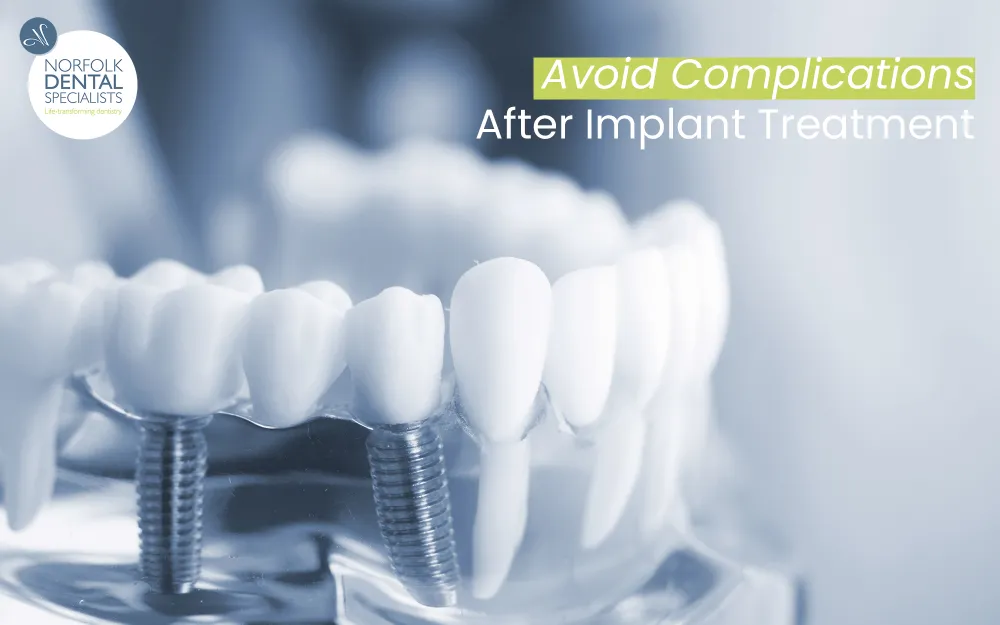Avoid Complications After Implant Treatment

Implant treatment is a procedure that can really change a person's life for the better. Patients at Norfolk Dental Specialists consistently report positive and life reaffirming outcomes. Following treatment, they are able to eat foods they have avoided for years, speak more clearly and smile with confidence. Our support doesn’t stop once your implants are in place and new crowns affixed to them. Our hygienists are available to help you develop and maintain oral hygiene habits that should prevent complications, and to intervene swiftly if any issues do crop up.
Maintaining Your New Smile
Following your implant treatment and crown fitting, our hygienists can:
- Recommend the right size interdental brushes (tepes). These brushes are specifically designed to clean between teeth and around implants.
- Teach you proper flossing techniques. Flossing is crucial for cleaning the space where the implant meets the crown (abutment interface).
- Schedule a professional cleaning. We recommend a cleaning shortly after your crown placement, even if you had one recently. This helps establish a baseline for your gum health.
- Schedule regular follow-up appointments. Depending on your individual needs and risk factors, these appointments may be every six months or three months initially, with annual X-rays and check-ups.
Understanding Peri-Implant Issues
There are certain types of gum disease that can affect implants. Here's how we can help prevent gum disease from taking hold in implant patients, and how we'll treat it if spotted early.
Peri-Implant Mucositis is the early stage of gum inflammation around an implant. Our hygienists will:
- Ensure you're using the right cleaning tools and techniques.
- If flossing proves difficult, recommend an alternative like applying an antiseptic gel with a ingle Tufted Brush.
- Perform a professional cleaning to remove inflammation and prevent further problems.
Peri-Implantitis is a more advanced stage of gum disease that requires more intensive treatments including surgical interventions in some severe cases. However if identified early it may be possible to treat with non-surgical techniques such as:
- Specific oral hygiene instructions with a focus on cleaning the implant abutment interface.
- Subgingival cleaning with special instruments and possibly airflow technology to remove bacteria deeply embedded around the implant.
- Repeat cleaning sessions depending on the severity of the condition.
Airflow technology uses a gentle stream of air and water to remove plaque and bacteria from the implant surface, which is particularly helpful because titanium, the material implants are made of, has microscopic pores where bacteria can hide.
Taking Care of Your Investment
Dental implants are a significant investment in your oral health and overall well-being. By following a thorough aftercare program with regular cleanings and proper hygiene habits, you can maximise the lifespan of your implants and enjoy a healthy, beautiful smile for years to come.
Ready to discuss implant treatment with our specialists and learn more about our comprehensive aftercare program? Call Norfolk Dental Specialists on 01603 632525 to arrange a free consultation.


